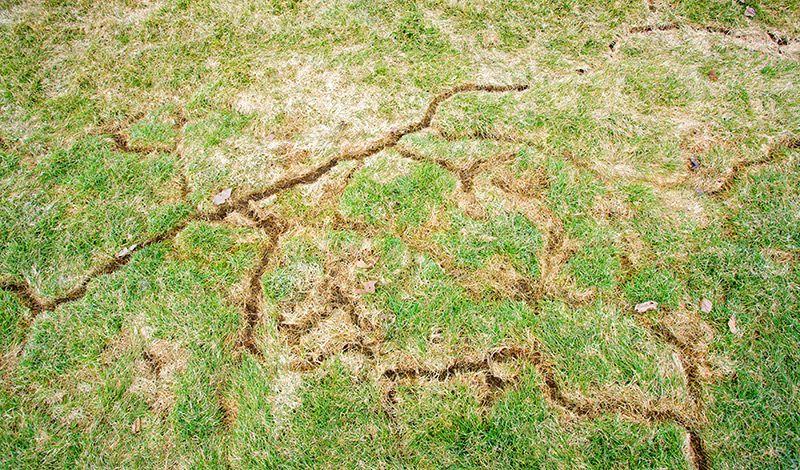

Vole Yard Damage & Repair Tips
We’re all anxious for the growing season to arrive, but when snowmelt reveals snake-like tunnels through our lawns it’s an early reminder of the pests we’ll face all season long. Vole damage isn’t pretty, but it can be fixed. Here’s how.
Voles
First, voles are not moles. Voles are vegetarians similar to field mice whereas moles are carnivorous and known for their digging claws. Vole populations cycle every 3 to 5 years and tend to fluctuate when mild winters with decent snowfall provide them with good cover from predators like birds of prey. Property owners with dogs and cats might not notice vole damage to the extent that others do.
How to identify vole damage
- Tunnels in the spring
- What appear to be snake-like tunnels are really just pathways in your yard. A true tunnel would be burrowed underground with raised soil mounds. Voles eat through your grass like Pac Man, not underneath it. Vole paths are about two-inches wide, and the grass blades and stems will be trimmed to the soil. Grass is a vole’s favorite meal.
- If you notice these tunnels, go check your flower bulbs. They are the next available food source and a likely future target.
- Vegetable gardens in the summer
- Remember, voles are vegetarians. Partially eaten root vegetables later on in the year could be a vole problem. This time of year, there is obviously no snow to cover them, so they tend to feed underground making root vegetables a cherished snack.
- Trees and shrubs all year
- Tiny bark shavings at the base of trees and shrubs is vole evidence, but the proof is in the teeth marks. Check the trunk or stem for quarter-inch, side-by-side tooth marks. The damage can worsen into the summer if you don’t address a vole problem; they will also tunnel through root systems leaving plants leaning as evidence.
Repair Tips
Rake the grass pathways that voles create to ensure early season sunlight reaches the soil. The grass likely hasn’t died, so don’t waste time seeding it unless you’re very concerned. It’ll grow back. Just give it time. If you’re not taking any chances, you can use a lawn fix grass seed.
Damage to flower bulbs, vegetable gardens, and trees is harder to fix. It’s best to get a game plan in place to remove the problem.
Prevent Voles
- Products like MoleMax repel burrowing animals. Yes, it’s named MoleMax, but it does work for voles as well. Since the active ingredient is castor oil, it is labeled safe for use around children, pets, and plants when label instructions are followed.
- Predator urine like fox or coyote is another option that will usually scare them off.
- Clearing snow from the base of trees and shrubs in the winter seems like overkill to us, but it is a suggestion if you have significant vole problems.
- Add gravel to the planting hole when you plant bulbs, and powder the bulbs with fungicide.
- Cover tree trunks with a tree guard
- To protect vegetable gardens put mesh hardware cloth 10 inches into the ground, and sticking out 12 inches above ground.
- Limiting overgrowth habitat gives voles fewer hiding places. That said, if you already have a tidy yard, you’re probably more likely to care about the damage.
Getting rid of Voles
Traps are a great option, but of course require regular monitoring. Poison is a last resort in residential settings, and in some cases it can only be used by certified professionals. Murdoch’s cautions our customers who choose to apply poison: always read and follow label instructions, especially those that are explicitly not safe for use around children, pets, livestock, and wildlife.
References: https://www.almanac.com/pest/voles
Related Articles

Farm & Ranch
How to Spread Pasture Seed
There is no one recipe to follow when it comes to pasture seeding. It’s as unique as the land you’re working...
Read More

Lawn & Garden
Choosing the Right Soil
Dig-in to soil science and discover the recipe for getting more from your cultivating efforts – indoors and out!
Read More

Lawn & Garden
Why Mulch Matters
Using mulch can help regulate soil temperatures, increase moisture retention, and decrease weed seed germination.